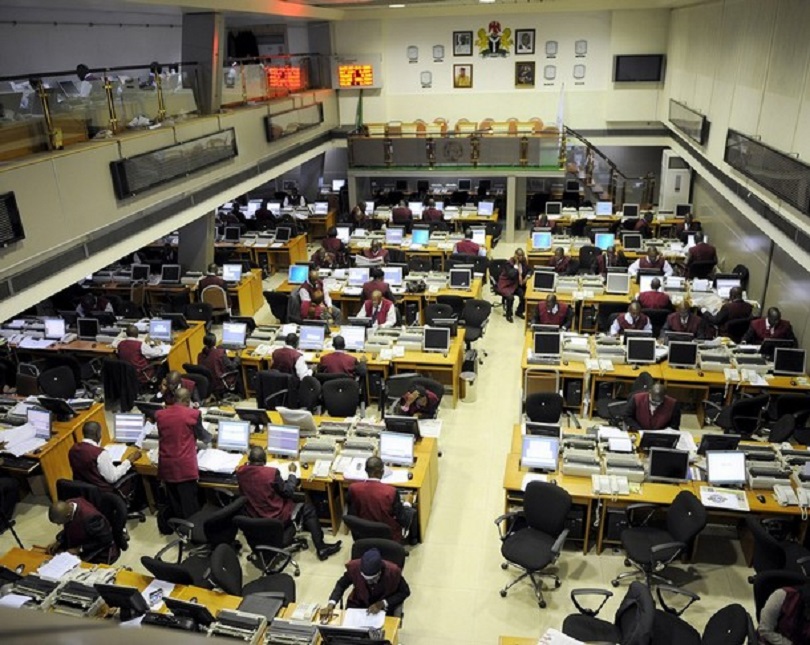Economy
DMO Commences Sale of FGN Savings Bonds for February 2023

By Modupe Gbadeyanka
The sale of FGN savings bonds for February 2023 by the Debt Management Office (DMO) has commenced, a circular from the agency has confirmed.
The exercise will last for one week, starting from Monday, February 6 to Friday, February 10, 2023, the disclosure added.
The debt instrument is targeted at low-income earners in the country, giving them the opportunity to support the federal government in raising funds to meet the budget deficit and earning something from this.
The DMO is offering the paper in two maturities, 2-year and 3-year, with a unit sold for N1,000 and the minimum subscription at N5,000, and the maximum subscription at N50 million.
The debt office is advertising the 2-year note due February 15, 2025, at a coupon rate of 10.04 per cent, and the 3-year note maturing on February 15, 2026, is selling at a coupon rate of 11.04 per cent.
The interest would be paid to subscribers every quarter, according to the statement issued by the organisation on Monday, stating that the bond can be purchased from any of the stockbroking firms it appointed as distribution agents.
Business Post reports that the FGN savings bond is backed by the full faith and credit of the Federal Government of Nigeria and charged upon the general assets of Nigeria.
It is tax-free because it qualifies as government securities within the meaning of Company Income Tax Act (CITA) and Personal Income Tax Act (PITA) for tax exemption for pension funds, amongst other investors.
The paper, which qualifies as liquid asset for liquidity ratio calculation for banks, also serves as securities in which trustees can invest under the Trustee Investment Act and would be listed on the Nigerian Exchange (NGX) Limited after the exercise.
Economy
Oil Prices Soar on Crude Inventories Fall, US Third Rate Cut

By Adedapo Adesanya
Oil prices appreciated on Wednesday after US crude inventories fell and the US Federal Reserve cut interest rates as expected, with Brent futures chalking up 20 cents or 0.27 per cent to trade at $73.39 per barrel and the US West Texas Intermediate (WTI) growing by 50 cents or 0.71 per cent to $70.58 a barrel.
Yesterday, the US Energy Information Administration (EIA) reported an inventory decline of 900,000 barrels for the week to December 13 versus an inventory draw of 4.7 million barrels estimated by the American Petroleum Institute (API) for the same week on Tuesday.
A week ago, the EIA estimated a crude oil inventory draw of a much more moderate 1.4 million barrels, while sizable builds in fuel stocks dampened the potential bullish effect of the crude inventory move.
For the week to December 13, the EIA estimated mixed changes in gasoline and middle distillate inventories.
Also, the US Federal Reserve cut interest rates for the third time to the 4.25 per cent and 4.50 per cent range.
The Federal Reserve, which hiked rates aggressively in 2022 and 2023 to combat a surge in inflation, began its easing cycle in September with a half-percentage-point cut in borrowing costs and followed up with a quarter-percentage-point cut last month.
The US central bank also signalled it will slow the pace at which borrowing costs fall further, given a relatively stable unemployment rate and little recent improvement in inflation.
There are projections that they will make just two quarter-percentage-point rate reductions by the end of 2025.
Lower rates decrease borrowing costs, which can boost economic growth and oil demand.
The decision led to the strengthening of the Dollar and limited gains in oil prices, as a stronger greenback makes oil more expensive in other countries, which can reduce demand.
Meanwhile, the latest sanctions announced by the UK and the EU against Russia are believed to limit the downward potential for oil prices but the effect is likely to be short-lived.
Fitch Ratings said on Wednesday that oil demand growth next year is likely to be in line with this year’s and the slower pace of growth compared to 2022 and 2023 would result in oil prices averaging $70 per barrel in 2025
This year, oil prices have averaged about $80 per barrel.
Economy
BUA Begins POP Cement Production, Crashes Price to N8,000

By Dipo Olowookere
The gypsum plaster market in Nigeria will become more competitive with the introduction of products from BUA Gypsum Plaster Limited.
Gypsum plaster, also known as Plaster of Paris (POP) or POP cement, is an essential ingredient in the production of suspended ceilings and other structures in the construction industry.
At the moment, the local market is saturated with products from outside the country, particularly from Egypt. Because of the exchange rate crisis in Nigeria, the price of a 40kg bag averages between N10,500 and N11,000.
BUA Gypsum Plaster, a subsidiary of BUA Group, is flooding the market with its product from the newly completed state-of-the-art manufacturing plant in Port Harcourt, Rivers State.
The company has the capacity to produce about 2,400 tons of gypsum plaster per day to meet domestic demand and cut down reliance on imports into Nigeria.
Business Post learned that the company is offering the product to distributors at an ex-factory promo price of N8,000 per bag. This is for those who register with the company on or before December 31, 2024.
“The commencement of production at BUA Gypsum Plaster marks a significant milestone in our mission to support Nigeria and West Africa’s infrastructure development.
“With a production capacity of 2,400 tons per day, this facility is poised to serve the housing and construction sectors and go a long way in reducing the reliance on imported gypsum plaster products,” the Chairman of BUA Group, Mr AbdulSamad Rabiu, said.
He noted that the gypsum plaster plant aligns with the organisation’s vision to improve the value chain and enhance capacity in the various industries it operates.
Economy
Nigerian Stocks’ YtD Return Now 34.38% After Midweek’s 0.43% Gain

By Dipo Olowookere
A 0.43 per cent growth recorded by the Nigerian Exchange (NGX) Limited on Wednesday has now moved the platform’s year-to-date (YtD) return to 34.38 per cent.
It has been a roller coaster for the local stock market in 2024, but it has remained strong amid the tough macroeconomic environment caused by inflation and the exchange rate crisis.
Yesterday, Customs Street performed well after almost all the key sectors experienced buying pressure, with only the industrial goods space closing flat.
Business Post reports that the insurance sector appreciated by 3.16 per cent, the banking index gained 0.68 per cent, the energy industry leapt by 0.33 per cent, and the consumer goods counter soared by 0.08 per cent.
At the close of business, the All-Share Index (ASI) was up by 426.52 points to 100,477.46 points from 100,050.94 points and the market capitalisation increased by N258 billion to N60.908 trillion from N60.650 trillion it ended a day earlier.
During the midweek session, a total of 42 equities ended on the gainers’ chart and 18 equities closed in red, representing a positive market breadth index and strong investor sentiment.
MRS Oil surged by 9.99 per cent to N159.70, Learn Africa chalked up 9.97 per cent to N3.53, International Energy Insurance rose by 9.77 per cent to N1.46, Coronation Insurance grew by 9.74 per cent to N1.69, and Livestock Feeds gained 9.73 per cent to sell for N3.72.
On the flip side, Africa Prudential lost 10.00 per cent to settle at N14.40, John Holt declined by 9.96 per cent to N6.51, Guinea Insurance slipped by 8.33 per cent to 66 Kobo, Deap Capital tumbled by 5.26 per cent to N1.08, and Consolidated Hallmark deflated by 4.17 per cent to N2.30.
Yesterday, the market participants traded 389.7 million shares worth N9.2 billion in 9,573 deals versus the 478.1 million shares valued at N22.5 billion transacted in 9,578 deals on Tuesday, implying a decline in the trading volume, value and number of deals by 18.49 per cent, 59.11 per cent and 0.05 per cent, respectively.
Sterling Holdings topped the activity log with 43.6 million stocks valued at N216.7 million, UBA traded 26.2 million equities worth N874.9 million, Fidelity Bank sold 25.7 million shares for N398.4 million, Universal Insurance exchanged 18.5 million stocks worth N6.8 million, and AIICO Insurance transacted 16.2 million equities valued at N21.6 million.
-

 Feature/OPED5 years ago
Feature/OPED5 years agoDavos was Different this year
-
Travel/Tourism8 years ago
Lagos Seals Western Lodge Hotel In Ikorodu
-

 Showbiz2 years ago
Showbiz2 years agoEstranged Lover Releases Videos of Empress Njamah Bathing
-

 Banking6 years ago
Banking6 years agoSort Codes of GTBank Branches in Nigeria
-

 Economy2 years ago
Economy2 years agoSubsidy Removal: CNG at N130 Per Litre Cheaper Than Petrol—IPMAN
-

 Banking2 years ago
Banking2 years agoFirst Bank Announces Planned Downtime
-

 Sports2 years ago
Sports2 years agoHighest Paid Nigerian Footballer – How Much Do Nigerian Footballers Earn
-

 Technology4 years ago
Technology4 years agoHow To Link Your MTN, Airtel, Glo, 9mobile Lines to NIN






















